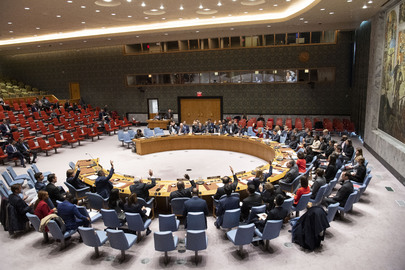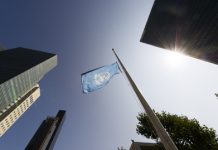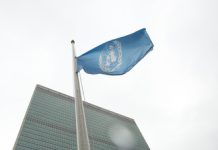For decades, helping the least developed countries to develop has been seen as beneficial for the international community as a whole, as well as a duty of the countries with more resources.
However, this philosophy is being challenged by some wealthy nations, which have decided to reduce or even end funding for projects and initiatives designed to support the poorer countries of the Global South in their attempts to improve the living standards and wellbeing of their citizens.
Ahead of the fourth International Conference on Financing for Development, which takes place in Seville, Spain, between 30 June and 3 July, Ms. Granados told Antonio Gonzalez from UN News that, despite the uncertainty, many rich countries, including Spain, still believe in the need for development financing and solidarity between nations.
This interview has been edited for clarity and length
UN News: Is development financing as we know it over?
Spain’s Secretary of State for International Cooperation, Eva Granados.
Eva Granados: Development cooperation and global solidarity are not only beneficial for everyone, but also a political and moral duty.
It is true that, in the last year, there has been a reduction in official development aid, but this is not the case for all countries. Spain, for example, has increased its contribution to official development aid by 12 percent.
The philosophy behind development financing is certainly being challenged in some quarters, but this is the same kind of denialism that questions the need for policies calling for equality between men and women, or the reality of the climate crisis. There are many people making a lot of noise, but there are far more of us who believe in global solidarity. We have to explain, and explain well, why this solidarity and this international cooperation matter.
I believe that all the peoples of the world have a duty to each other, and we need to counter these narratives; climate change is clearly affecting us all and solidarity between genders is beneficial to the whole of society.
In 2015, at a conference in Addis Ababa [which laid the groundwork for a landmark international agreement on financing], we talked about debt issues, international taxation, trade and research. It’s the job of those of us who are committed to development cooperation and financing for development to make this agenda evolve.
UN News: Why is it in the interests of richer countries like Spain to spend money on international development?
Eva Granados: In the case of Spain, international cooperation and global solidarity are part of our social contract. Cooperation and peaceful relations between the peoples of the world are included in our constitution, and setting aside a 0.7 percent contribution of our gross national income to international cooperation is inscribed in law.
And this benefits our country. For example, during the COVID-19 pandemic, it was clear that, whilst the challenges were national, the solutions were global. Another example is climate change. The Mediterranean is heavily impacted, both on the European and African side. We have to cooperate and work in a coordinated manner, to form partnerships and to create global policies.
UN News: There is a €4 trillion annual gap in the funding needed for development and what is currently raised. Can this gap be bridged?
Eva Granados: The financing gap is large, but relatively speaking, €4 trillion is still only one percent of the financial transactions that take place annually. I think we have quite a few scenarios where it can be achieved.
If all donor countries contributed 0.7 percent of Gross National Income, we would barely meet 10 percent of the financing needs for development. This means that we have to do everything we can to attract investment, and work with the private sector.
We also have to help create global tax systems that distribute wealth and end the situation whereby two out of five citizens worldwide live in countries that spend more on debt servicing than on education or health services. It is unacceptable that the richest and wealthiest on the planet are contributing so little to international development. Super-rich people and large multinationals have to do more.
UN News: What results do you want to see coming out of this conference?
Eva Granados: These are uncertain times, but Seville is a ray of light for global solidarity. The countries represented at the conference are signalling that they believe in multilateralism.
The objective is to obtain more and better resources for sustainable development. We need to combine ambition with action. Just as in Addis Ababa, where we were able to reach agreement on a large number of issues, Seville is the time to put concrete issues on the table and bring together the political will of world leaders to reach agreements.
Seville is also a good time for us to set that viewpoint from the perspective of women. It is important that, in all the chapters of the document we are discussing, the needs of women are at the forefront.
And it is important that the final document includes a follow-up mechanism, so that countries can be held accountable on an annual basis for the commitments we reach, and a commitment from all Member States to contribute to official development aid.
Source of original article: United Nations (news.un.org). Photo credit: UN. The content of this article does not necessarily reflect the views or opinion of Global Diaspora News (www.globaldiasporanews.com).
To submit your press release: (https://www.globaldiasporanews.com/pr).
To advertise on Global Diaspora News: (www.globaldiasporanews.com/ads).
Sign up to Global Diaspora News newsletter (https://www.globaldiasporanews.com/newsletter/) to start receiving updates and opportunities directly in your email inbox for free.





























